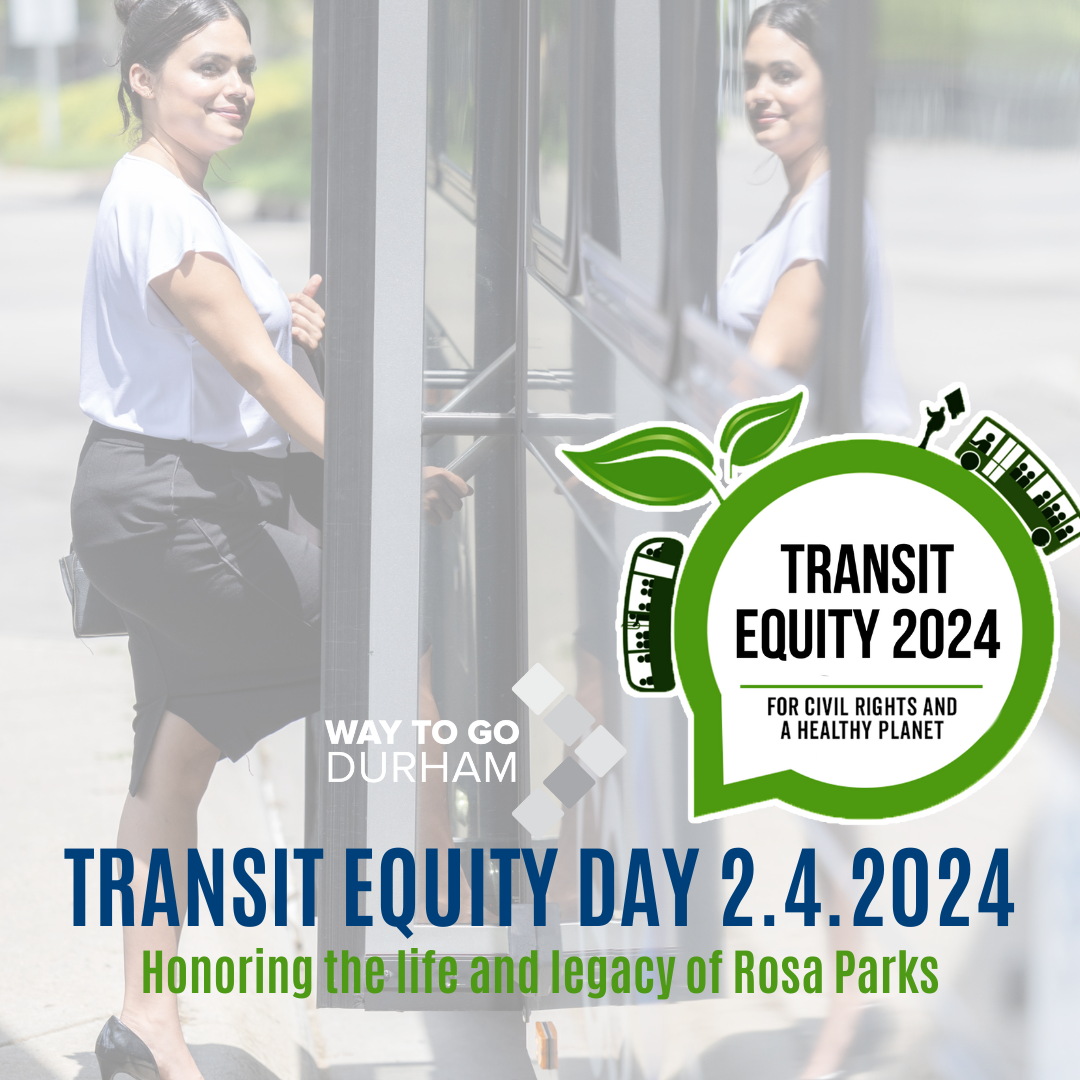The fight for equitable access to transportation has been leading the way for civil rights advocacy since 1896. One hundred twenty-eight years later, we recognize Transit Equity Day by honoring the sacrifices and preserving the legacy of civil rights icon Rosa Parks through our work to establish mobility justice for all.
Rosa Park’s Impact:
In 1955, Rosa Parks was arrested after she refused to give up her seat on a segregated bus in Montgomery, Alabama. Her refusal to move initiated the Montgomery Bus Boycott, a 13-month protest that ended with the Supreme Court declaring segregated buses unconstitutional. Almost 70 years later, her pioneering efforts are still recognized through continued advocacy for mobility justice.
What We’re Doing:
The Transportation Department is leading multiple projects and initiatives to keep equity as an action to achieve mobility justice. We prioritize affordability and accessibility to help connect our residents to their jobs, health care, schools, and other necessities using our public transportation system.
Fare- Free Transit:
Since 2020, bus transit across GoDurham, GoTriangle, GoRaleigh, and GoCary has been fare-free. Across Durham, bus routes have been restored to pre-pandemic levels, and in 2024, new routes and 15-minute service changes will be implemented. Transit will remain fare-free until June 30, 2024.
Bus Stop Improvements:
The City leads the Better Bus Project, an initiative to improve bus stops across Durham by designing sidewalks and installing ADA pads, lighting, seating, and shelters.
Transit Equity Action Plan:
In late 2023, the Department of Transportation announced its plans to develop the Transit Equity Action Plan (TEAP). The plan will create an equity tool for all transportation projects through a safety and network analysis and equity index.
Reimagine Durham Freeway Study:
Transportation is leading the Reimagining Durham Freeway Study to develop a community-led vision for the Durham Freeway corridor (also known as NC 147) through central Durham. This project aims to address the harm caused when the freeway was built and destroyed well-established Black communities such as Hayti and Brookstown. With a focus on being a community study, this project will reconnect communities in central Durham adjacent to the corridor needed to determine the future of the Freeway.
Call to Action in Your Community:
Host a Community Bus Stop Cleanup:
You can connect with organizations such as Keep Durham Beautiful to lead an organized clean-up for your community. You, and a few friends can organize your own clean-up at a nearby bus stop. You can locate your closest bus stop here. All you will need are a few trash bags, gloves, and thoughtfulness to reflect on the meaning of Transit Equity Day.
Ride Transit – learn your route here.
Join an Advocacy Group such as Bike Durham, Durham CAN, or your local NAACP Chapter.
Happy Transit Equity Day. Today and every day, we honor the work of civil rights icons who advocated to make transit accessible for all. We will continue doing our part to ensure it remains that way for future generations.

